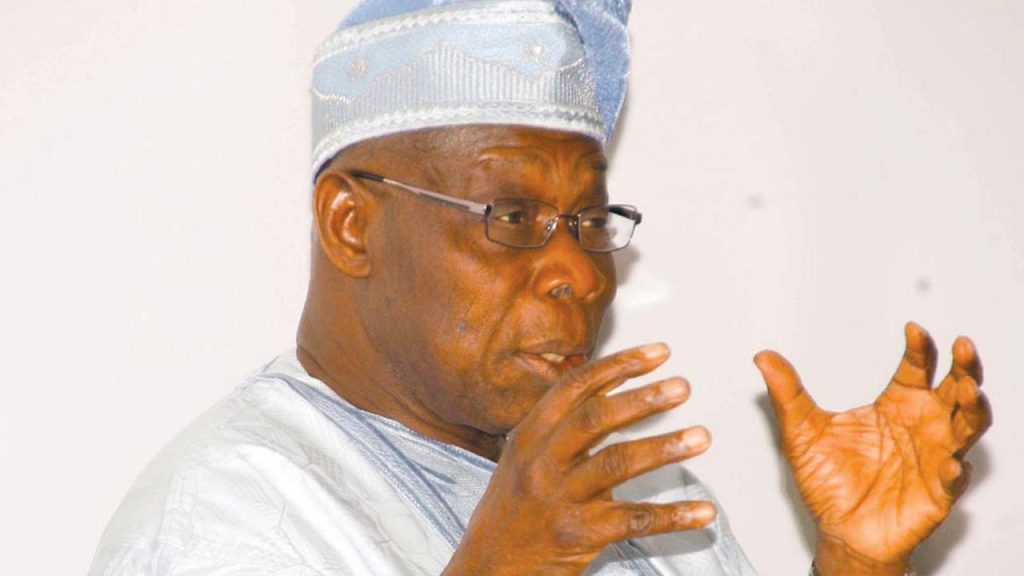The xenophobic attacks on Africans including Nigerians by some South African locals which began as a child’s play is taking an unpredictable dimension.
During the funeral service for ex-President Robert Mugabe in Harare, Zimbabwean capital on Sunday, South African President Cyril Ramaphosa got more than he bargained for from the angry masses: jeers.
Though a South African envoy sent by Ramaphosa had visited and apologised to President Muhammadu Buhari over the attacks on Monday, some Nigerians have proffered tougher stance against the Rainbow country.
Former Nigerian President Olusegun Obasanjo Monday urged countries whose citizens were affected in the xenophobic attacks in South Africa to take the matter to the African Union (AU) for redress.
In a letter to the president of the Inkatha Freedom Party, Mangosuthu Buthelezi, who is a leader of the opposition in South Africa over the attacks, Obasanjo also advised the countries to consider other measures if the situation continued.
Mr Buthelezi had publicly condemned the attacks and was last week booed off the stage at a rally in Johannesburg to discourage South African youth from xenophobia.
“For any African country to encourage or allow or not seriously sanction xenophobia against Africans in their country, it is a great disservice not only to the country where xenophobia takes place and the countries of the victims concerned, but also a great disservice to the whole of Africa and black race,” Mr Obasanjo wrote.
The former president, in the letter which was made available to journalists by his media aide, Kehinde Akinyemi, said there is a “need for fence-mending, reconciliation and wound-binding between South Africa and the countries whose citizens have been victims of xenophobia and Afrophobia in South Africa.
“As a suggestion, South Africa should send emissaries to the countries concerned to explain, apologise and agree on the way forward for mutual understanding, accommodation, reconciliation, and binding the wound to promote unity, concord, and brotherhood in Africa.”
Obasanjo said, “repatriation of Nigerians from South Africa is obviously not a permanent solution, but at best it is palliative.” He said the hurt will remain for some time, adding that revenge is not a desirable solution.
“Mutual understanding and acknowledgement of what needs to be done on all sides are imperative and getting down to doing them is the solution that will serve Nigeria and South Africa and indeed Africa well particularly in this era of Africa Continental Free Trade Area opportunities.
“Nigeria and South Africa must stand together to champion African cause and to jointly shepherd African development, unity, cooperation, security, and progress to make the 21st century Africa’s century,” he wrote.
In his reaction, Professor Bolaji Akinyemi, Sunday, called on the Nigerian Government to drag South Africa to the International Criminal Court of Justice over the xenophobic attacks that claimed lives and property of some Nigerians.
Akinyemi, former Nigerian minister of foreign affairs, said the South African government failed to protect Nigerians and made statements unbecoming of a responsible country. The former minister said Nigeria must sue South Africa because the xenophobic attacks were in violation of Article 2, Paragraph 2 of the International Covenant on Economic, Social and Cultural Rights.
The attacks, according to Akinyemi, were also against Article 2, Paragraph 1 of the International Covenant on Civil and Political Rights, the United Nations Convention on the Elimination of All Forms of Racial Discrimination and the International Convention on the Protection of Migrant Workers.
Akinyemi in a statement also accused South African authorities of sponsoring or condoning the attacks, which the country’s foreign affairs minister Naledi Pandor described as Afrophobia. Akinyemi said statements made by South African leaders such as Pandor, defense minister Nosiviwe Mapisa-Nqakula and former deputy minister of police Bongani Mkongi encouraged the latest attacks on Nigerians and other foreign nationals.
On his part, Femi Falana, the human rights lawyer concurred that Nigeria should sue the South African government over the killing of Nigerians.
Falana said “Apart from the official condemnation of the shameful and cowardly attacks the south African government should fish out the culprits and prosecute them. In addition to the payment of adequate compensation to all the victims of the mindless attacks the government must teach South Africans about the immense contributions of the people of Cuba and a number of African countries to the struggle waged against apartheid and colonialism in the southern African region”.
He said: “The Nigerian High Commission in Pretoria should be directed to coordinate the legal defence. In view of the regular harassment of Nigerians in South Africa and a few other African countries the federal government should make the Declaration to enable individual victims of human rights abuse to access the African Court on Human and Peoples Rights sitting in Arusha, Tanzania.”
When they were contacted, President Muhammadu Buhari’s spokesman Femi Adesina and his special adviser on Diaspora, Abike Dabiri-Erewa said only the ministers of foreign affairs and information can comment on Akinyemi’s advice. “All matters relating to diplomatic moves or foreign affairs policies should be directed to the Minister Foreign Affairs,” Dabiri-Erewa said.
Nigeria’s foreign affairs minister Geoffrey Onyeama told reporters that Nigeria “cannot rule anything out for now” when asked if Nigeria will sue South Africa. The country is currently weighing its options.”
“We are still receiving reports from our High Commission and the Consulate General, evaluating them and weighing options,” Onyeama said on Sunday.

